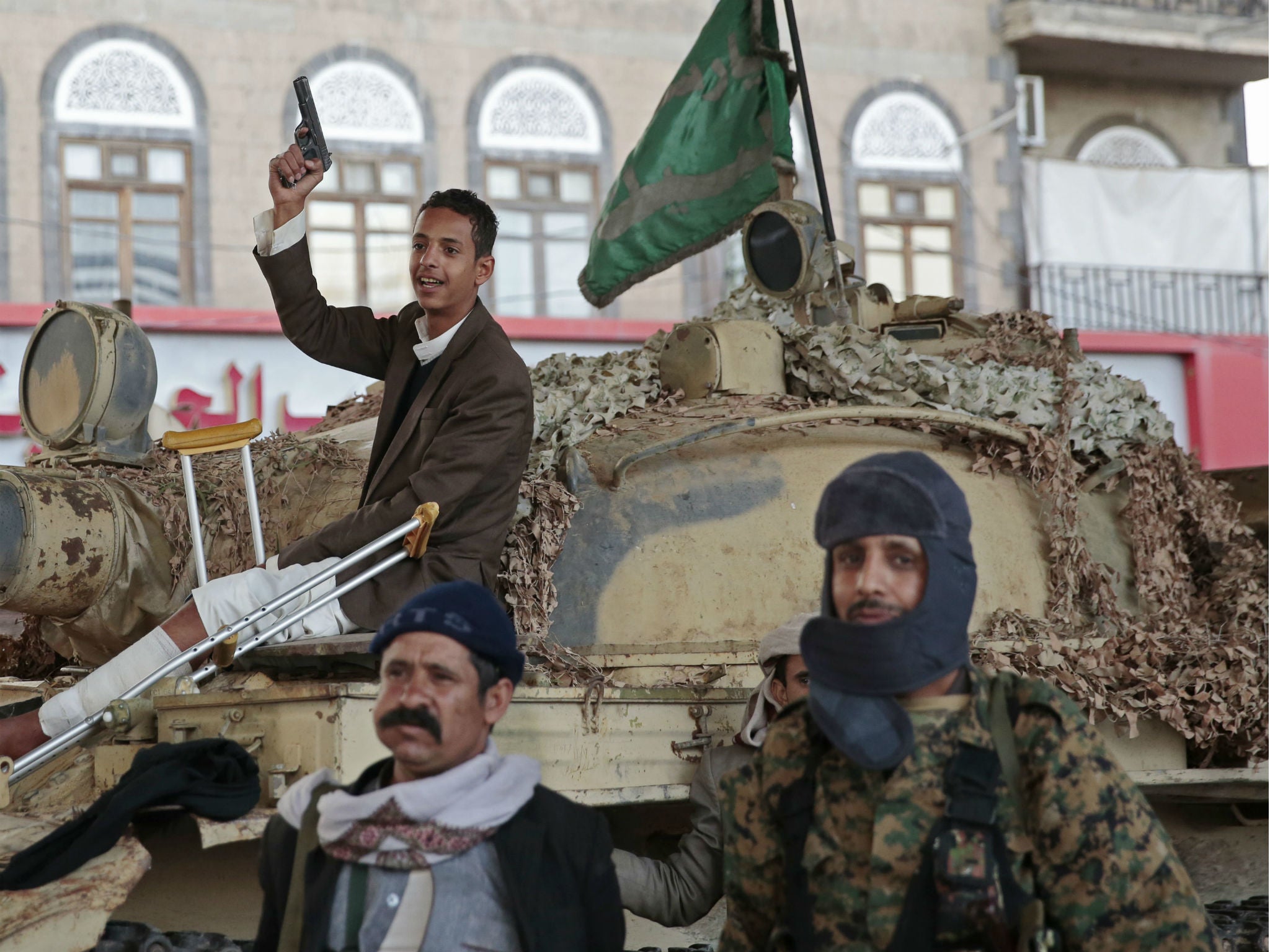Yemen's Saleh built a presidency on fear and uncertainty, the confusion his death leaves is a fitting epitaph
The former leader - who always tried to make himself the linchpin of alliances - leaves a power vacuum that will be difficult to fill with anything but more violence

Former President Ali Abdullah Saleh once said that governing Yemen was like dancing on the heads of snakes.
But the image of his country as a viper’s nest was always self-serving and self-fulfilling: through three decades of divide and rule, deceit and violence, Saleh played on every cynical short-term interest – from those of presidents in Washington to jihadis in hillside caves – to shore up his power.
By Monday, the old master had run out of tricks; captured and killed by militants of the rebel movement known as the Houthis, with whom he built an alliance of convenience between 2014 and last week, when he finally turned on them too.
Saleh, who became president in 1978, was overthrown in 2011 after troops loyal to him fired on protests against his rule. The administration which followed rapidly lost legitimacy, and by 2014 Saleh saw an opening. He formed an alliance with the Houthis, and instructed troops still loyal to abandon their positions and allow the Houthis to take the capital and, later, much of the rest of the country.
But the Houthis would not let Saleh rule. And so, reputedly, he was plotting to reach a deal with Saudi Arabia and its allies to oust the Houthis and make a separate peace. The tensions that plotting provoked erupted into last week’s fighting.
As he lay dead in the back of a pickup truck, wrapped in a blanket, the state which he had built lay in ruins, the country which he had united in 1990 was once again divided, and his final play, to secure the future influence of his family in Yemeni politics, appeared to have failed.
Yet his death leaves a chasm in the midst of power in his country. As news of his death filtered out, the guns that rattled the air of the capital, Sanaa for days, fell quiet.
Every Yemeni, from those emerging from basements and backrooms to count the dead, to the Saudi-backed government in exile in Riyadh, to disenfranchised Southerners and feuding militants of every side, were forced to reckon with the casting aside of old hopes and certainties.
The Houthi movement, a minority religious order which before 2014 had no national political profile, will now discover if it has the political and military wherewithal to hold together the patchwork alliance which has held off several regional powers and their Yemeni allies for more than two and a half years with little loss of territory.
Saleh was sometimes said to have brought to the alliance not so much military strength – the Houthis often complained that he held his troops back from the front lines – than a deep network of tribal relationships, crucial to the informal power base of the country, and the ability to project a more inclusive image than the Houthis of Yemeni identity. His followers brought a measure of bureaucratic sophistication to a hardscrabble militant movement.
The resilience of that movement will now be tested against the vigour of their enemies. Forces loyal to the Riyadh-based government are reported to be preparing for a push toward the capital through the mountains to its east in an attempt to take advantage of the confusion and division which the rebellion has caused.
At the nearest point, the anti-Houthi fighters are perhaps 30 miles away, but they have hardly advanced in the past year. It is unknown how much their prospects have changed – particularly since the Houthis seem largely to have quelled the rebellion behind their lines.
If the Houthi alliance survives, and if the expected offensive fails, the Saudi-led coalition – and the impetuous prince at its head, Mohammed bin Salman – will be compelled to starkly confront their options. If they cannot defeat the Houthis through subversion, nor through pitched battle, nor through the humanitarian crisis which their blockade on the north has caused, what options remain?
Their alliance, too, is fraying: there were two gun battles in Aden this week between parties to the coalition, and several anonymous shootings. Little in the coalition’s recent behaviour gives hope that they would choose compromise rather than a further, damaging escalation on one front or another, of what is already the world’s gravest humanitarian crisis.
And that is why even millions of Yemenis who hated Saleh will not rejoice at his passing. Throughout his political life, he made himself the lynchpin of alliances. Even in death, he was seeking to position himself as the only available interlocutor in the north for the Saudi coalition, and thus the necessary gatekeeper for an end to the war in which everyone could save a little face.
In truth, the truculence of the Houthis and the insistence of Saudi Arabia on the utter humiliation of its enemies, would always have called into question his ability to affect that deal. But nonetheless, that is what many seem to have hoped: that perhaps Saleh’s last manipulation might have inadvertently saved Yemen at the same time as himself.
But it was not to be.
Now, no one really knows what will happen next. Saleh built a state upon fear and a society upon uncertainty. That his death has caused, itself, so much worry and so much confusion is perhaps his fitting epitaph.
Saleh wasn’t the dancer. He was the viper and all Yemen danced to his tune. That era is over.
Join our commenting forum
Join thought-provoking conversations, follow other Independent readers and see their replies
Comments